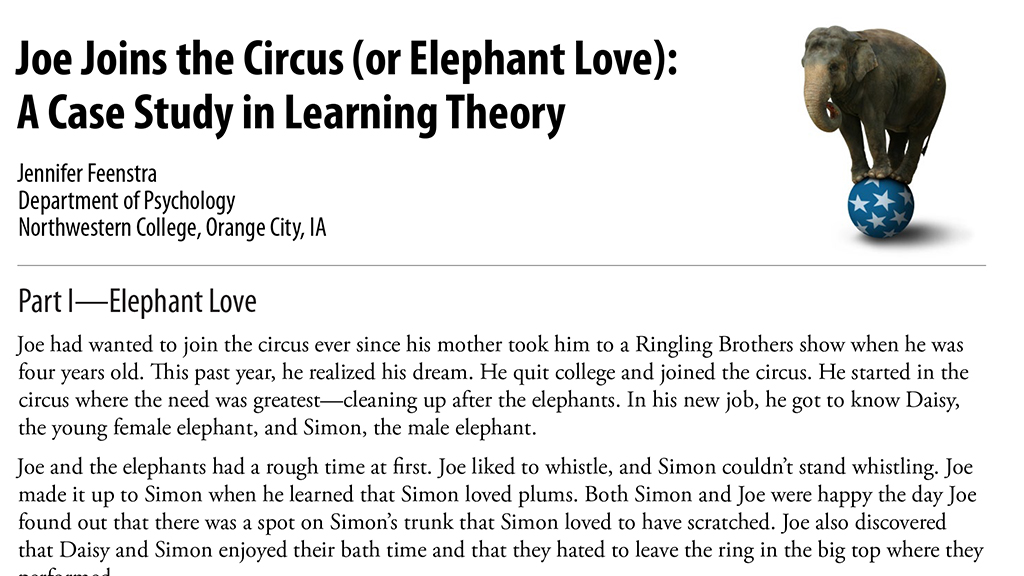Abstract
In this interrupted case study, students cover concepts and terms related to classical and operant conditioning as they read about how "Joe," an animal trainer for a circus, trains the two elephants in his charge. Joe sets about his task using concepts he learned in a psychology class before dropping out of college to join the circus. Students work in small groups to answer the questions associated with the case, then, as individuals, take a series of quizzes designed to check their understanding of key concepts and terms including conditioned/unconditioned stimuli and responses, positive/negative reinforcement and punishment, shaping, and partial/continuous reinforcement schedules. The case can be used in upper-level psychology courses as a way to remind students of learning theory concepts. It could also be used in an introductory psychology course following a lecture on learning theory.



